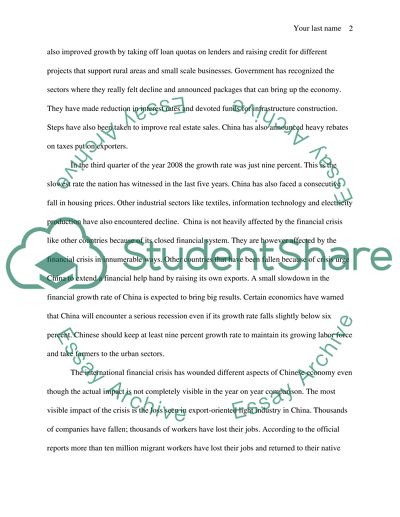Cite this document
(“The Financial Crisis and Its Impact on China Research Paper”, n.d.)
Retrieved from https://studentshare.org/family-consumer-science/1419721-the-financial-crisis-and-its-impact-on-china
Retrieved from https://studentshare.org/family-consumer-science/1419721-the-financial-crisis-and-its-impact-on-china
(The Financial Crisis and Its Impact on China Research Paper)
https://studentshare.org/family-consumer-science/1419721-the-financial-crisis-and-its-impact-on-china.
https://studentshare.org/family-consumer-science/1419721-the-financial-crisis-and-its-impact-on-china.
“The Financial Crisis and Its Impact on China Research Paper”, n.d. https://studentshare.org/family-consumer-science/1419721-the-financial-crisis-and-its-impact-on-china.


